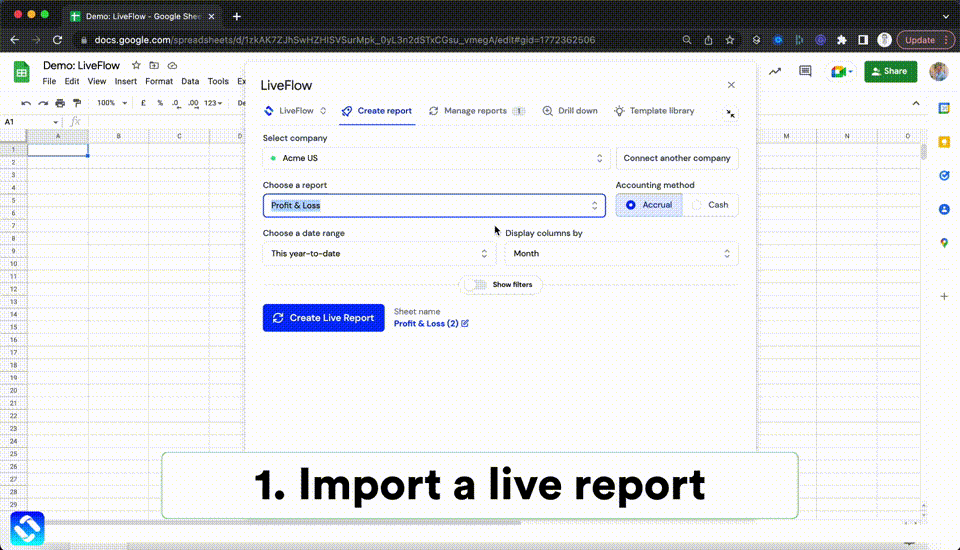When it comes to the business world, there are two essential functions: finance and accounting. Though they are closely related, there is a clear distinction and difference between accounting and finance.
In this comprehensive guide, we will explore what those differences are, what each function entails, and how they work together to create a well-oiled machine of a business. Are you ready to learn? Let's get started!
What is the difference between finance and accounting?
At its core, finance is the study of how money moves in and out of a business. This can include things like investments, capital fundraising, and budgeting.
On the other hand, accounting is more focused on what happened with that money. This includes recording transactions, preparing financial statements, and ensuring compliance with laws and regulations.
In short, finance is all about making decisions about what to do with money, while accounting is all about keeping track of what was done with the money.
While both finance and accounting are essential for businesses, they each play very different roles. Let's take a closer look at what each function entails:
Finance:
● Developing strategies to ensure long-term financial stability
● Managing short-term cash flow
● Making decisions about how to use company resources
● Raising capital (e.g., through issuing equity or taking out loans)
● Investing company funds
● Analyzing financial data to make informed business decisions
Accounting:
● Recording and classifying financial transactions
● Preparing financial statements (e.g., income statement, balance sheet, etc.)
● Ensuring compliance with laws and regulations
● Conducting audits
● Providing decision support through analysis of financial data.
As you can see, finance and accounting are two distinct but interrelated fields. Financial professionals focus on ensuring the long-term financial health of a company, while accountants focus on recording, classifying, and reporting on financial transactions. Both play an essential role in helping businesses make informed decisions and achieve their goals.
What is the difference between a degree in finance and accounting?
Because the aims of the two fields are different, the skill sets required are also different. A finance degree will typically have more of a focus on mathematics and statistics, while an accounting degree will have a stronger emphasis on communication and problem-solving skills.
While there is some overlap between the two fields when it comes to accounts vs finance, they each have their own unique set of challenges and rewards. So, if you're trying to decide which one is right for you, it's important to consider your interests, strengths, and career goals.
Do you want to work with numbers and analyze financial data? If so, accounting may be the right field for you. Or, do you want to use your analytical skills to make decisions about how a company should invest its resources? If so, finance may be the better option.
What is the difference between accounting and finance departments?
In a professional sense, finance is the process of managing money. This includes everything from budgeting and investments to financial planning and risk management. Accounting, on the other hand, is the process of recording, classifying, and summarizing financial transactions.
The accounting department is responsible for producing financial statements and reports that provide insights into a company's financial health. The finance department, on the other hand, uses this information to make decisions about how to best use a company's resources.
While both accounting and finance are important to businesses, they serve different purposes. Accounting is focused on the historical financial information of a company, while finance is focused on making decisions about the best way to use a company's resources.
What is the difference in perspective between finance and accounting?
As you might expect, the perspective of accounting is more past-focused. Financial statements show what has happened in the past, and accountants use this information to prepare tax returns and other reports.
The focus of finance is on the future. Finance professionals use financial information to make decisions about where to invest a company's money and how to best manage its resources.
What is the difference between finance and accounting jobs?
The day-to-day responsibilities of an accountant and a financial analyst can be very different. Accountants typically work in an office environment, preparing tax returns and financial reports. Financial analysts often travel to meet with clients and potential investors.
Both finance and accounting jobs require strong math skills. However, finance jobs also require the ability to think abstractly and to find creative solutions to problems.
What are some of the key skills needed for a career in finance?
Finance requires strong math skills and analytical ability. Finance professionals also need to be able to communicate clearly and concisely, as they will often need to present their findings to senior executives or shareholders.
In addition, because finance is all about making decisions about how best to use a company's resources, those working in finance must be good at problem-solving and have the ability to think creatively.
What are some of the key skills needed for a career in accounting?
Accounting requires strong math skills and analytical ability. Accountants also need to be able to communicate clearly and concisely, as they will often need to present their findings to senior executives or shareholders.
In addition, because accounting is all about maintaining accurate financial records, those working in accounting must be highly organized and detail-oriented.
What is the difference between finance and accounting functions?
The main difference between finance and accounting is that accounting focuses on the day-to-day management of financial records, while finance is concerned with broader strategic decisions.
For example, an accountant might be responsible for preparing and analyzing a company’s financial statements, while a financial analyst might be tasked with evaluating different investment opportunities to recommend to senior executives.
At its core, accounting is all about tracking and reporting financial transactions, while finance is about using that information to make decisions about how to best use a company’s resources.
How LiveFlow can help
LiveFlow is the perfect tool for small businesses and accounting firms who want to streamline their financial operations.
LiveFlow’s accounting software is designed to save you time and money by automating many of the tedious tasks that come with managing your finances, such as invoicing, tracking expenses, and preparing tax returns. LiveFlow is a valuable platform built for QuickBooks, which is designed to make it easy to create an integrated, real time connection between your QuickBooks data and customized reports and dashboards in Google Sheets. This means that you don’t have to give anyone access to QuickBooks simply to review reports – you can use pre-built templates or bring live data to any customized report you already have. This way, you only share what departments need to see. The live connection between QuickBooks and Google Sheets means that your reports will always be up to date – without any manual exports, data formatting or hands-on effort.
To find out more about how LiveFlow can help your business, request a demo today.




.png)





